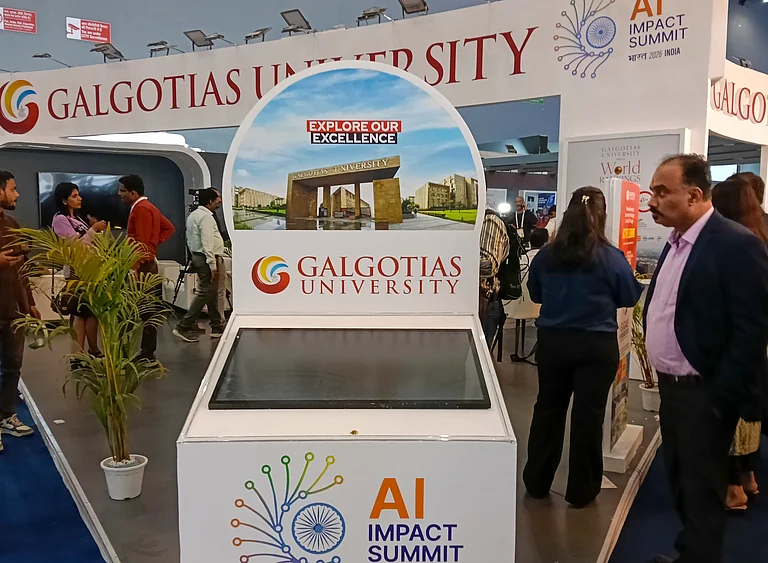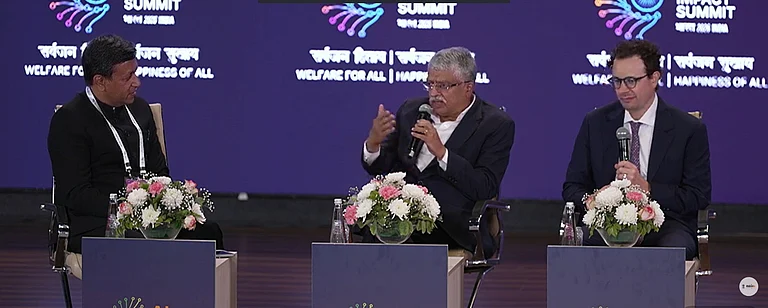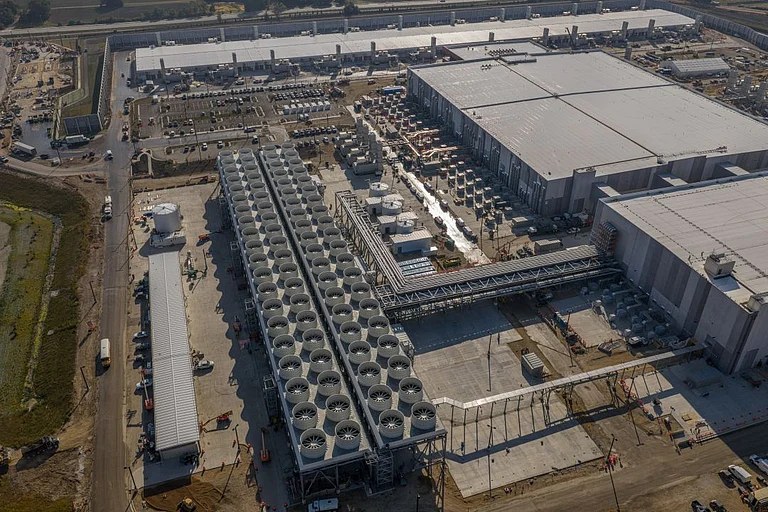The fusion of Hindi, spoken by 57.2 crore people in India and another 50 crore globally, with cutting-edge technology, opens up a vast realm of opportunities for businesses, allowing them to reach previously inaccessible markets, said Neil Parekh, Chairman of the Singapore Indian Chamber of Commerce and Industry, at the Global Hindi Excellence Summit - 2024.
Speaking at the summit held over the weekend, Parekh underscored the growing importance of Hindi for working within the fast-paced development of India’s economy. He emphasized that the language is more than just a medium of communication; it is a tool that connects businesses to the Indian market. “As we transcend the world of digitalisation, where boundaries between cultures and markets are increasingly blurred, language has emerged as a crucial bridge connecting people, ideas and opportunities,” Parekh said.
The theme of the summit, Hindi Excellence in this Era of Innovation, reflects how language, combined with technology, can create numerous business opportunities in today’s interconnected world. Parekh stated, “Hindi is not just a language for communication but also a bridge to a deeper cultural understanding. It allows us to tap into the Indian market, which offers excellent potential for corporations and SMEs looking to expand internationally.”
Parekh highlighted the massive reach of Hindi, noting that it is the third most spoken language in the world, with over 50 crore speakers globally, including 57.2 crore speakers in India alone. “The sheer scale of these numbers highlights the importance of language as a tool for businesses to connect with the local communities in India and across the world through the diaspora,” he explained.
Parekh also elaborated on the role of advanced technologies, particularly artificial intelligence (AI), in overcoming language barriers. He pointed out how AI-powered tools such as Google Translate and Microsoft Translator are revolutionizing communication across different linguistic backgrounds. “The potential of AI-powered tools, such as Google Translate and Microsoft Translator, to allow individuals from diverse linguistic backgrounds to communicate instantly, improving both spoken and written exchanges with increasing accuracy, is a reason for us to be optimistic about the future of communication,” Parekh remarked.
The summit, organized by the Singapore-based Global Hindi Foundation, plays a crucial role in fostering cultural exchange. Parekh stated, “By celebrating Hindi and its influence across industries and borders, these platforms create opportunities for deeper intercultural dialogue and understanding.” He also noted that India's rich linguistic and cultural heritage opens doors for Indian businesses and talent to contribute significantly to global progress.
Mandar Padhye, a financial consultant based in Singapore, also spoke at the summit, addressing efforts to propagate languages, particularly Hindi, which is taught in many schools across Singapore. While he acknowledged challenges in promoting language learning in a multi-ethnic society, he emphasized the importance of parental involvement. “Parental guidance to learning a language is important,” Padhye said.
Highlighting the growing global influence of Hindi, Padhye remarked, “Globally, English is the language you have to know, and the next two languages you have to know are Hindi and Chinese (Mandarin) because the next generation of leaders are coming from places speaking these languages.” He also pointed out that many business leaders from the Indian community often default to Hindi, making it an essential language for global executives.
Padhye emphasized the importance of Hindi for foreign executives working in India. “It is also important for foreign executives based in India to be well versed in Hindi as India is playing a pivotal part in the global economy,” he said, adding that with India’s rising prominence in sectors like technology, medicine, and business, the importance of Hindi will continue to grow. “For the next 10-15 years, it is India’s game in global businesses, and the importance of this main Indian language will grow with that,” Padhye said.
Padhye, who has lived in Singapore for two decades, concluded by underscoring the emotional connection people have with their mother tongue. “The feel and expression are fantastic in your mother tongue, no matter how much you master other languages,” he observed.
Alka Bhargav, principal at Pre-Examination Training Centre in Indore, was also present at the summit and shared her insights with around 300 participants. She appreciated the cultural performances at the event and called for “freer communications” in Hindi among corporations. Bhargav also urged for more efforts to promote Hindi globally and emphasized the need for teaching programs to further propagate Hindi as a primary language.
The Global Hindi Excellence Summit 2024 thus served as a platform for business leaders and language advocates to discuss the growing significance of Hindi, particularly as India continues to expand its influence in the global economy.
(This story has been slightly reworked from an auto-generated PTI feed.)























